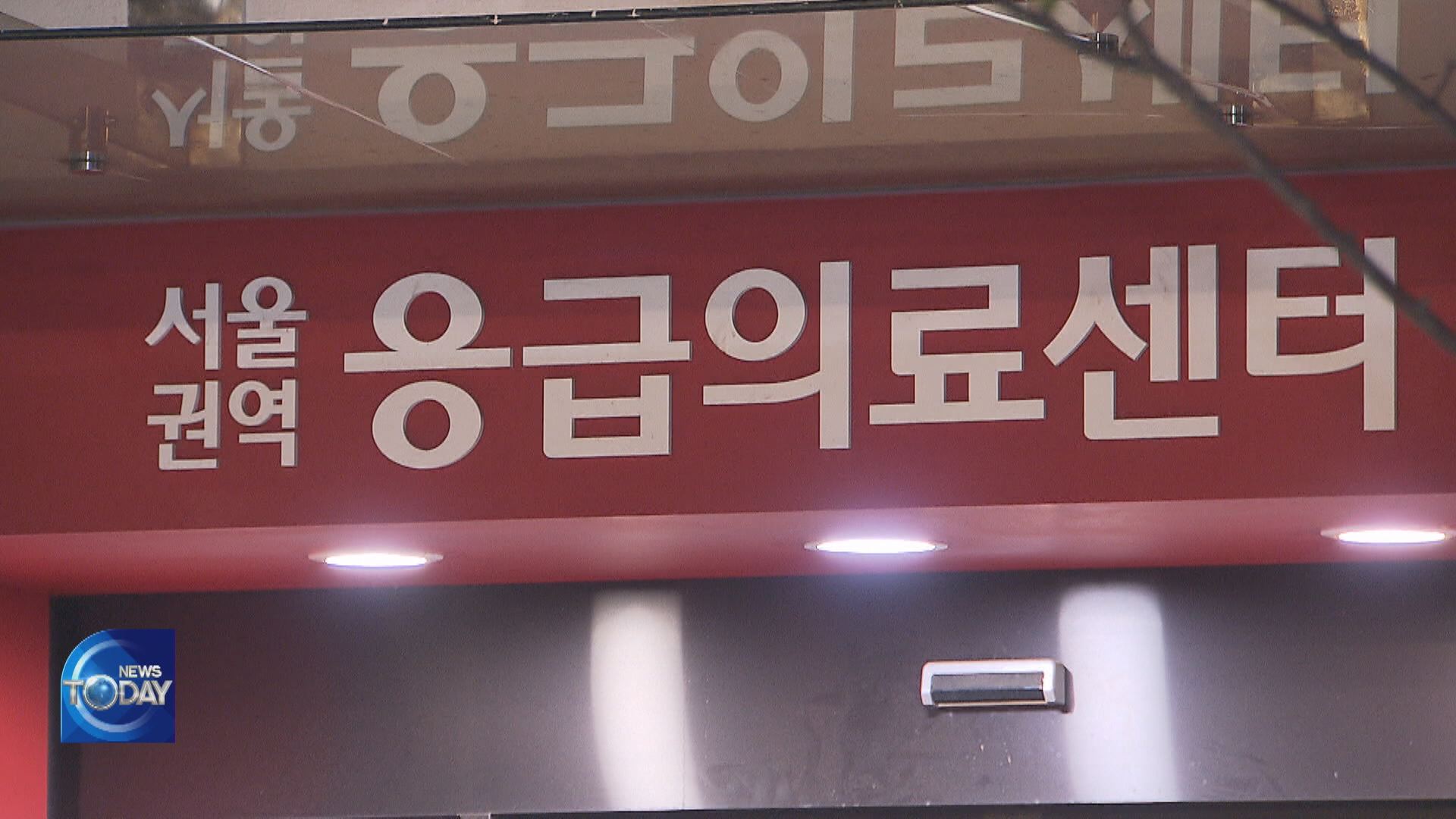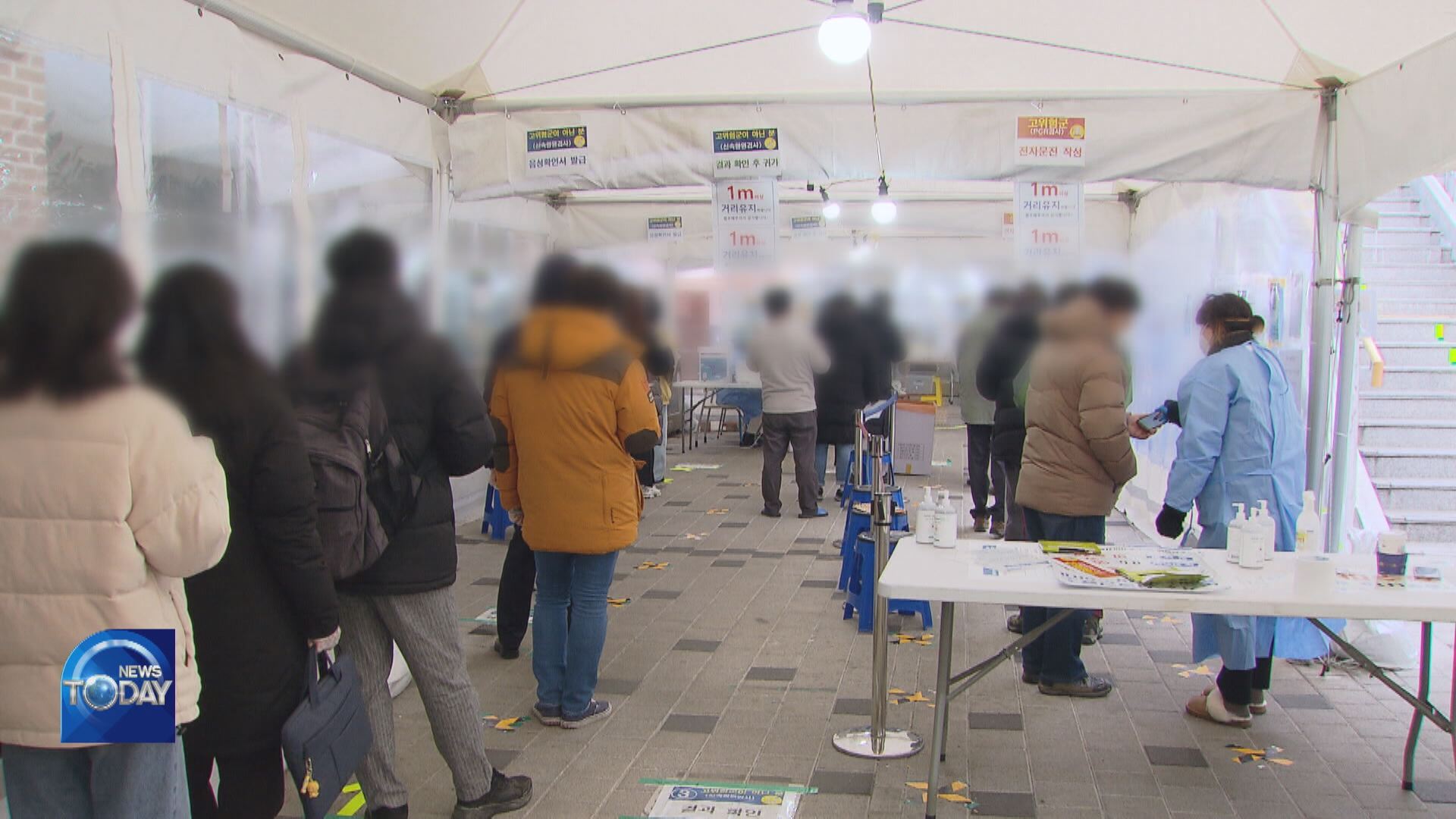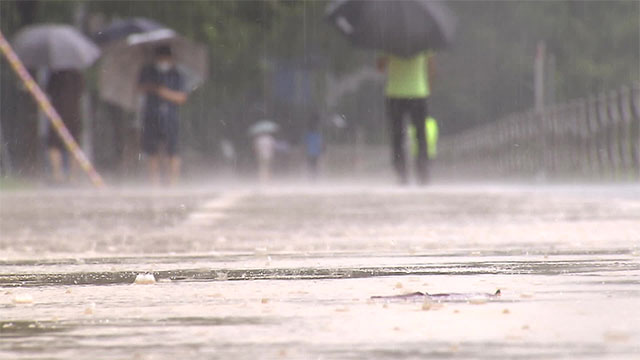EMERGENCY TRANSPORT SYSTEM OVERLOAD
입력 2022.02.25 (15:06)
수정 2022.02.25 (16:50)
읽어주기 기능은 크롬기반의
브라우저에서만 사용하실 수 있습니다.
[Anchor Lead]
On the COVID-19 pandemic, Korea reported 165,890 cases today, falling below 170,000 for the first time in two days. Although the omicron variant is less lethal than the delta variant, a spike in cases caused by its rapid spread is overloading the emergency transport system.
[Pkg]
A woman in her 80s is being transported in an ambulance after suffering from breathing difficulties and symptoms suspected of COVID-19. She underwent a rapid antigen test at the hospital. The result was positive. But since the hospital’s isolation ward was full, she was soon moved to another hospital with negative pressure chambers.
[Soundbite] Lee Yeong-gyeong(Firefighter, Jeongeup Fire Station) : "Isolation wards at local hospitals were full, so she called an ambulance to go to a bigger hospital with an isolation ward availability."
Increasingly, paramedics transporting urgent patients have to search for available hospitals. This is caused by a surge in overall COVID-19 cases which naturally overwhelms the medical system. Healthcare professionals admit that the unavailability of medical services has a correlational relationship with the premature death of a four-month-old boy with COVID-19 or emergencies where more pregnant women who test positive lose time searching for hospitals capable of delivering their babies.
[Soundbite] Lee Hyung-min(Chair, Korean Society of Emergency Medicine) : "Normally common situations, like dealing with dialysis or delivery, cannot be handled. I heard that a pregnant woman with COVID-19 had a problem recently."
As an increasing number of urgent patients are left in limbo, the government announced that it would strengthen the emergency medical response system. Ten more COVID-19 emergency medical centers will be secured for urban regions by the end of this month. Also, more beds will be made available for COVID-19 patients even in ERs at general hospitals. The National Emergency Medical Center will oversee the coordination of medical information such as hospital bed availability with emergency response teams. In short, more beds will be made available for urgent COVID-19 patients so that no more critical patients will miss the “golden time.”
On the COVID-19 pandemic, Korea reported 165,890 cases today, falling below 170,000 for the first time in two days. Although the omicron variant is less lethal than the delta variant, a spike in cases caused by its rapid spread is overloading the emergency transport system.
[Pkg]
A woman in her 80s is being transported in an ambulance after suffering from breathing difficulties and symptoms suspected of COVID-19. She underwent a rapid antigen test at the hospital. The result was positive. But since the hospital’s isolation ward was full, she was soon moved to another hospital with negative pressure chambers.
[Soundbite] Lee Yeong-gyeong(Firefighter, Jeongeup Fire Station) : "Isolation wards at local hospitals were full, so she called an ambulance to go to a bigger hospital with an isolation ward availability."
Increasingly, paramedics transporting urgent patients have to search for available hospitals. This is caused by a surge in overall COVID-19 cases which naturally overwhelms the medical system. Healthcare professionals admit that the unavailability of medical services has a correlational relationship with the premature death of a four-month-old boy with COVID-19 or emergencies where more pregnant women who test positive lose time searching for hospitals capable of delivering their babies.
[Soundbite] Lee Hyung-min(Chair, Korean Society of Emergency Medicine) : "Normally common situations, like dealing with dialysis or delivery, cannot be handled. I heard that a pregnant woman with COVID-19 had a problem recently."
As an increasing number of urgent patients are left in limbo, the government announced that it would strengthen the emergency medical response system. Ten more COVID-19 emergency medical centers will be secured for urban regions by the end of this month. Also, more beds will be made available for COVID-19 patients even in ERs at general hospitals. The National Emergency Medical Center will oversee the coordination of medical information such as hospital bed availability with emergency response teams. In short, more beds will be made available for urgent COVID-19 patients so that no more critical patients will miss the “golden time.”
■ 제보하기
▷ 카카오톡 : 'KBS제보' 검색, 채널 추가
▷ 전화 : 02-781-1234, 4444
▷ 이메일 : kbs1234@kbs.co.kr
▷ 유튜브, 네이버, 카카오에서도 KBS뉴스를 구독해주세요!
- EMERGENCY TRANSPORT SYSTEM OVERLOAD
-
- 입력 2022-02-25 15:06:10
- 수정2022-02-25 16:50:29

[Anchor Lead]
On the COVID-19 pandemic, Korea reported 165,890 cases today, falling below 170,000 for the first time in two days. Although the omicron variant is less lethal than the delta variant, a spike in cases caused by its rapid spread is overloading the emergency transport system.
[Pkg]
A woman in her 80s is being transported in an ambulance after suffering from breathing difficulties and symptoms suspected of COVID-19. She underwent a rapid antigen test at the hospital. The result was positive. But since the hospital’s isolation ward was full, she was soon moved to another hospital with negative pressure chambers.
[Soundbite] Lee Yeong-gyeong(Firefighter, Jeongeup Fire Station) : "Isolation wards at local hospitals were full, so she called an ambulance to go to a bigger hospital with an isolation ward availability."
Increasingly, paramedics transporting urgent patients have to search for available hospitals. This is caused by a surge in overall COVID-19 cases which naturally overwhelms the medical system. Healthcare professionals admit that the unavailability of medical services has a correlational relationship with the premature death of a four-month-old boy with COVID-19 or emergencies where more pregnant women who test positive lose time searching for hospitals capable of delivering their babies.
[Soundbite] Lee Hyung-min(Chair, Korean Society of Emergency Medicine) : "Normally common situations, like dealing with dialysis or delivery, cannot be handled. I heard that a pregnant woman with COVID-19 had a problem recently."
As an increasing number of urgent patients are left in limbo, the government announced that it would strengthen the emergency medical response system. Ten more COVID-19 emergency medical centers will be secured for urban regions by the end of this month. Also, more beds will be made available for COVID-19 patients even in ERs at general hospitals. The National Emergency Medical Center will oversee the coordination of medical information such as hospital bed availability with emergency response teams. In short, more beds will be made available for urgent COVID-19 patients so that no more critical patients will miss the “golden time.”
On the COVID-19 pandemic, Korea reported 165,890 cases today, falling below 170,000 for the first time in two days. Although the omicron variant is less lethal than the delta variant, a spike in cases caused by its rapid spread is overloading the emergency transport system.
[Pkg]
A woman in her 80s is being transported in an ambulance after suffering from breathing difficulties and symptoms suspected of COVID-19. She underwent a rapid antigen test at the hospital. The result was positive. But since the hospital’s isolation ward was full, she was soon moved to another hospital with negative pressure chambers.
[Soundbite] Lee Yeong-gyeong(Firefighter, Jeongeup Fire Station) : "Isolation wards at local hospitals were full, so she called an ambulance to go to a bigger hospital with an isolation ward availability."
Increasingly, paramedics transporting urgent patients have to search for available hospitals. This is caused by a surge in overall COVID-19 cases which naturally overwhelms the medical system. Healthcare professionals admit that the unavailability of medical services has a correlational relationship with the premature death of a four-month-old boy with COVID-19 or emergencies where more pregnant women who test positive lose time searching for hospitals capable of delivering their babies.
[Soundbite] Lee Hyung-min(Chair, Korean Society of Emergency Medicine) : "Normally common situations, like dealing with dialysis or delivery, cannot be handled. I heard that a pregnant woman with COVID-19 had a problem recently."
As an increasing number of urgent patients are left in limbo, the government announced that it would strengthen the emergency medical response system. Ten more COVID-19 emergency medical centers will be secured for urban regions by the end of this month. Also, more beds will be made available for COVID-19 patients even in ERs at general hospitals. The National Emergency Medical Center will oversee the coordination of medical information such as hospital bed availability with emergency response teams. In short, more beds will be made available for urgent COVID-19 patients so that no more critical patients will miss the “golden time.”
이 기사가 좋으셨다면
-
좋아요
0
-
응원해요
0
-
후속 원해요
0












![[단독] 위성락 실장 “전작권 협상 카드 아냐”…<br>차관 인선 발표](/data/layer/904/2025/07/20250713_krfuHu.jpg)




이 기사에 대한 의견을 남겨주세요.